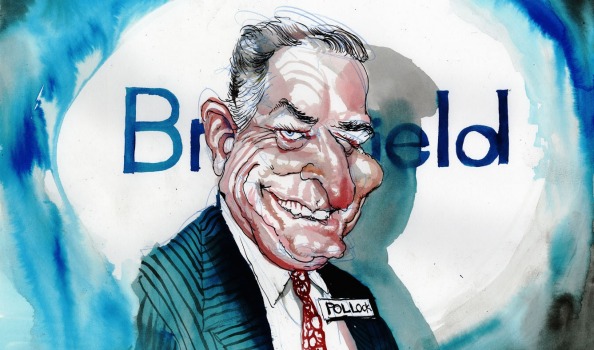-
Tips for becoming a good boxer - November 6, 2020
-
7 expert tips for making your hens night a memorable one - November 6, 2020
-
5 reasons to host your Christmas party on a cruise boat - November 6, 2020
-
What to do when you’re charged with a crime - November 6, 2020
-
Should you get one or multiple dogs? Here’s all you need to know - November 3, 2020
-
A Guide: How to Build Your Very Own Magic Mirror - February 14, 2019
-
Our Top Inspirational Baseball Stars - November 24, 2018
-
Five Tech Tools That Will Help You Turn Your Blog into a Business - November 24, 2018
-
How to Indulge on Vacation without Expanding Your Waist - November 9, 2018
-
5 Strategies for Businesses to Appeal to Today’s Increasingly Mobile-Crazed Customers - November 9, 2018
Asciano shares halted ahead of likely Brookfield deal
Brookfield Infrastructure Group, backed by Canada’s largest alternative asset manager, agreed to buy Asciano Ltd.in a deal that values the Australian rail and port operator at A$12 billion ($8.8 billion) including debt.
Advertisement
The full details of the initial cash-and-scrip offer were kept quiet, though Asciano said it valued its stock around $9.05 a share.
A sale of Asciano to Brookfield Infrastructure will change the dynamics of the Australian logistics industry, and will create a stronger competitor to rail group Aurizon.
Japan Post Holdings recently purchased logistics firm Toll Holdings after a consortium led by China Merchants Group acquired Newcastle Port past year.
Brookfield will secure a 55 per cent stake in Asciano, while Brookfield-sponsored and managed private funds will claim 23 per cent and two institutional partners will evenly split the remaining 22 per cent. Asciano last traded at A$8.11 on the Australian Stock Exchange.
Shareholders will also have the opportunity to receive 90c of the $6.94 a share payout by way of a fully franked special dividend, which could provide an additional 39c of value for eligible shareholders.
Analysts said Aurizon could acquire some of Pacific National’s rail assets if Brookfield succeeds in buying Asciano and sells off parts of the business.
Brookfield Infrastructure, the Bermuda-based infrastructure arm of Brookfield Asset Management, owns utilities, transport, energy and communications infrastructure in North and South America, Europe and Australia.
Brookfield Infrastructure’s assets in Australia include the Dalrymple Bay Coal Terminal in Queensland and a freight rail network.
Advertisement
The company, which is traded in New York and Toronto, has raised about $1.4-billion since the start of 2015 to fund acquisitions and has about $2.3-billion in cash and cash equivalents, Pollock said May 6.





























